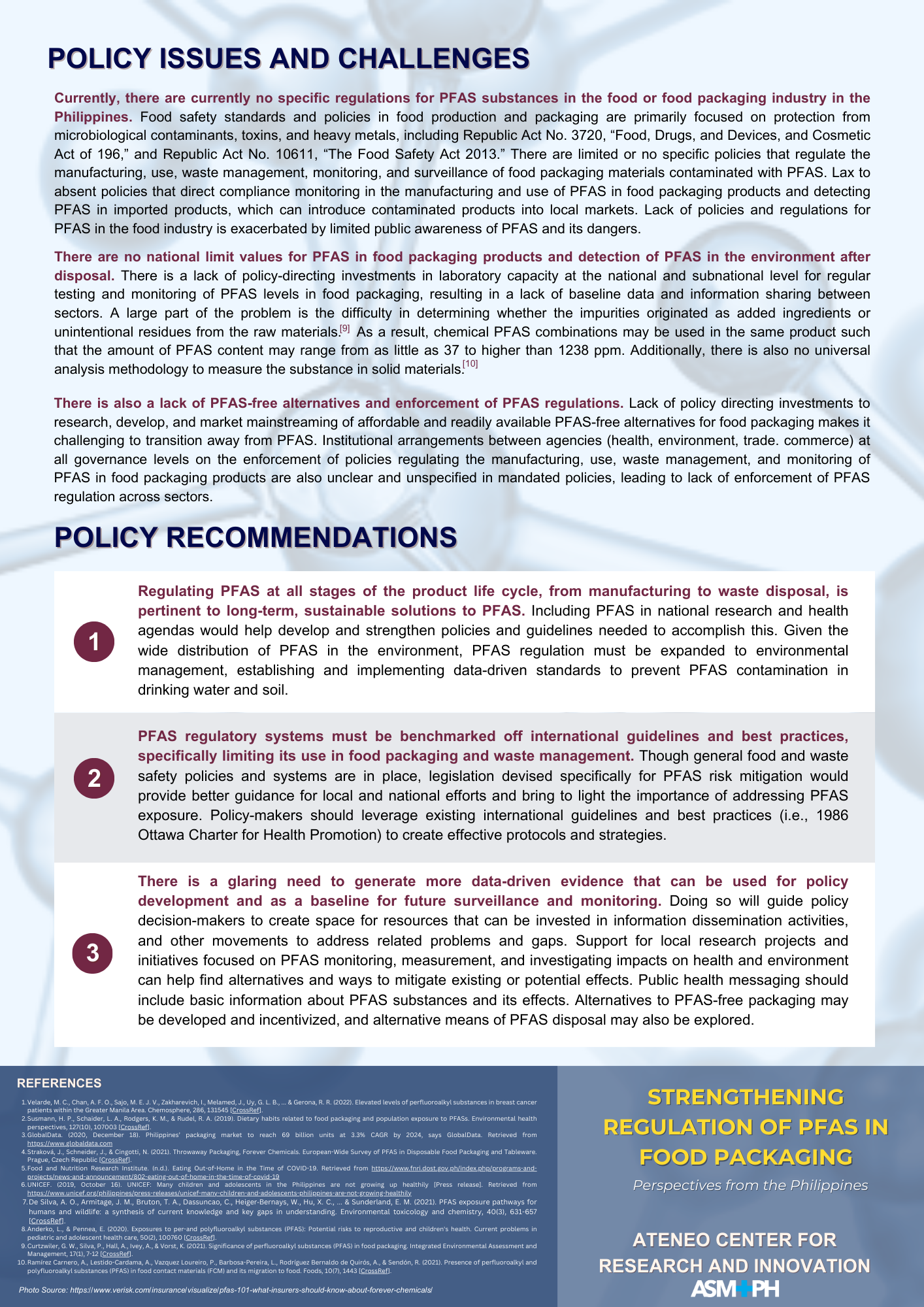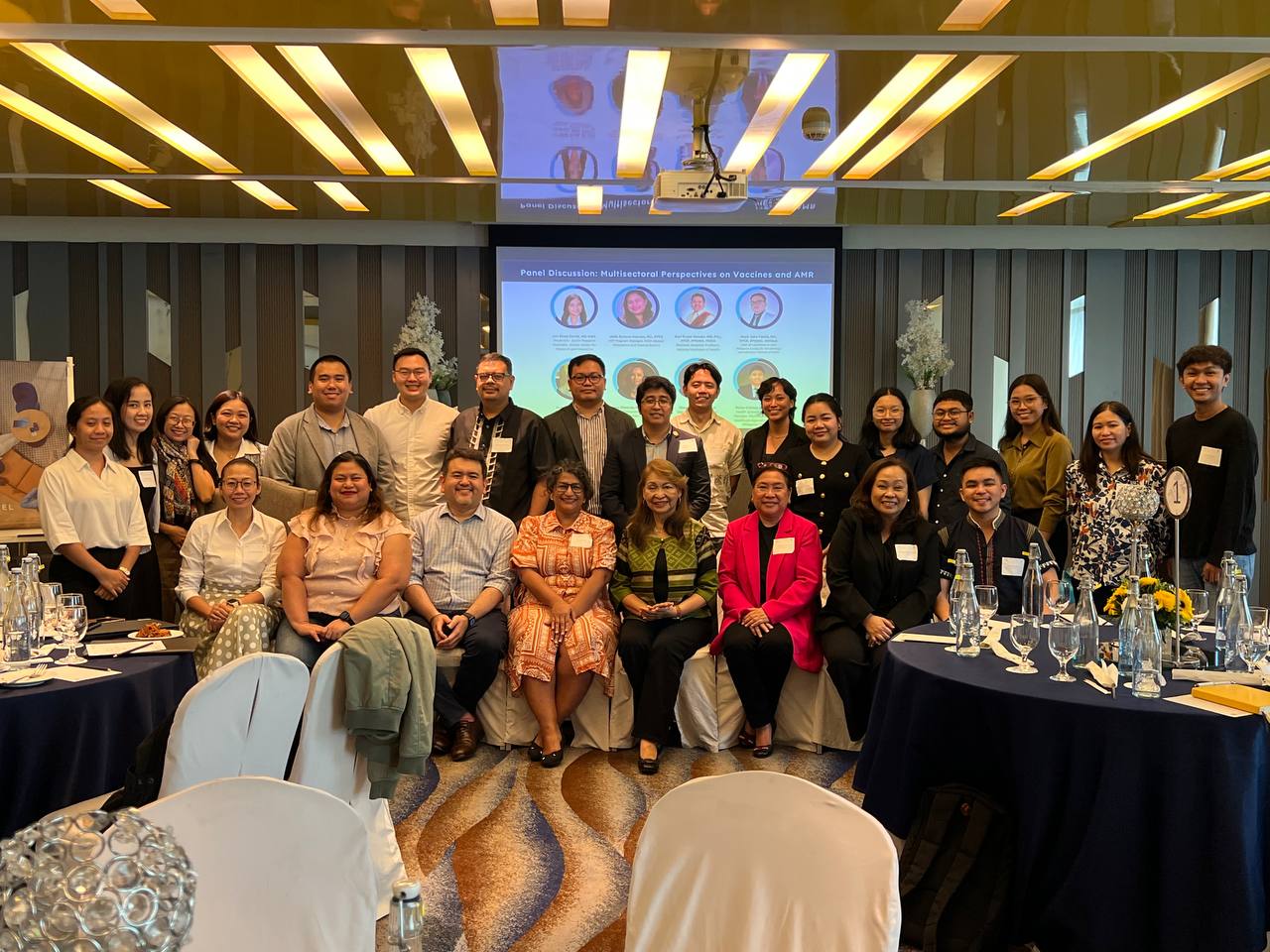
Policy Brief: Strengthening Regulation of PFAS in Food Packaging Perspectives from the Philippines
Per- and Polyfluoroalkyl- substances (PFAS), a group of chemicals widely linked to a variety of health conditions, including cancer, immunotoxicity, cardiorespiratory diseases, endocrine toxicity, reproductive issues, and neurodevelopmental complications, has been found to be commonly used in food paper packaging products. Women, children, and factory workers are at higher risk to these negative health impacts due to inherent age and sex-related vulnerabilities and increased exposure.
This scoping review investigates the existing policies and regulations for PFAS use in food paper packaging in the Philippines, as well as the gaps and challenges in mitigating risk exposure in vulnerable populations.


-

The Unseen Link: Vaccines and Antimicrobial Resistance in the Philippine Context
Antimicrobial resistance is already claiming lives, and the global pipeline for new antibiotics is shrinking. In August 2025, experts gathered to explore a critical question: Can vaccines become a frontline weapon against AMR? The science is clear—by preventing infections, vaccines reduce antibiotic use and slow resistance. But translating this into action means confronting data gaps, political barriers, and financing challenges. As one expert noted: "When we vaccinate, we reduce the frequency of these diseases. That means fewer antibiotics—used and misused." With no country in the Global South yet integrating vaccines systematically into AMR strategies, the Philippines has a chance to lead—if stakeholders can move from consensus to action.
-

Advancing vaccine uptake to mitigate antimicrobial resistance (AMR) in low and middle-income countries of South or South-East Asia
This project explores how strengthening vaccine uptake can serve as a key strategy to mitigate antimicrobial resistance (AMR) in the Philippines and across South and South-East Asia. By reducing the burden of vaccine-preventable diseases and the unnecessary use of antibiotics, the study aims to provide actionable recommendations for national and institutional stakeholders to better integrate vaccination initiatives into AMR control efforts, ultimately contributing to stronger, more resilient health systems.
